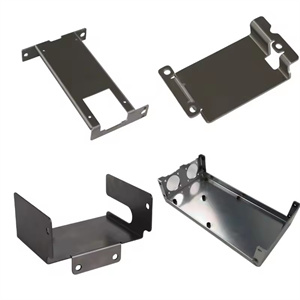In the CNC punching process, heat treatment is an important step with the following functions and significance:
Improving material performance: By heat treatment, the hardness, strength, toughness, wear resistance, and other properties of the material can be adjusted to make it more suitable for specific stamping needs.
For example, for stamped parts that require high hardness and wear resistance, quenching treatment can be carried out.
Eliminating internal stress: Reduce the internal stress generated by the material during the stamping process to prevent deformation or cracking of the parts during subsequent use.
Annealing treatment can effectively reduce internal stress and improve the dimensional stability of parts.
Improve product quality: optimize material performance, ensure the accuracy and quality of stamped parts, improve product reliability and service life.
Cost reduction: Choosing the appropriate heat treatment process can improve material performance and reduce scrap rates without increasing excessive costs.
The tempering treatment of CNC punching is a heat treatment step aimed at the metal materials used in its machining process. This step aims to improve the mechanical properties of the material, such as hardness, toughness, strength, and wear resistance, to meet specific processing requirements.
CNC punching machine is a high-precision and efficient automated mechanical processing equipment that can automatically select suitable tools according to the set program to perform processing operations such as punching, tapping, indentation, drawing, cutting, etc. on metal sheets. During the processing, metal materials may experience internal stress or structural changes due to the influence of mechanical and thermal forces, which may affect the performance and service life of the material.
Tempering treatment is a heat treatment process that involves heating and insulation followed by slow cooling. For the metal materials used in CNC punching machines, tempering treatment can eliminate or reduce the internal stress generated during the processing, improve the toughness and ductility of the material, while maintaining a certain degree of hardness and strength. This can enable metal materials to have better performance stability and reliability in subsequent processing and use.
When conducting tempering treatment, it is necessary to strictly control parameters such as heating temperature, insulation time, and cooling rate. The selection of these parameters depends on the type, thickness, required mechanical properties, and subsequent usage conditions of the metal material. By using a reasonable tempering process, the quality and performance of products processed by CNC punching machines can be significantly improved.
The tempering treatment of CNC punching is one of the important steps to ensure that its processed products have excellent performance.
